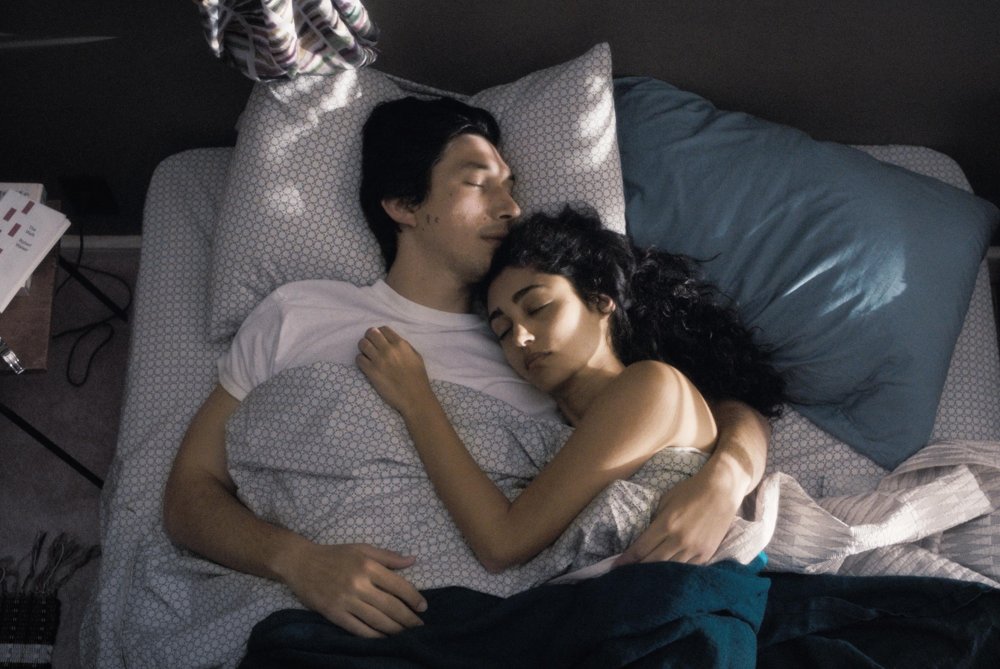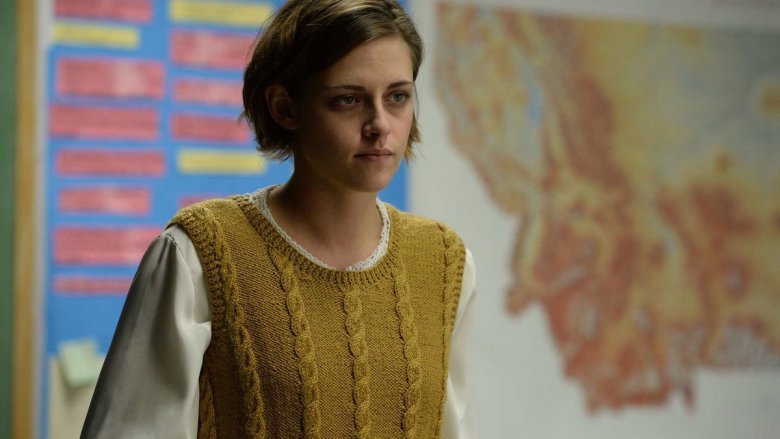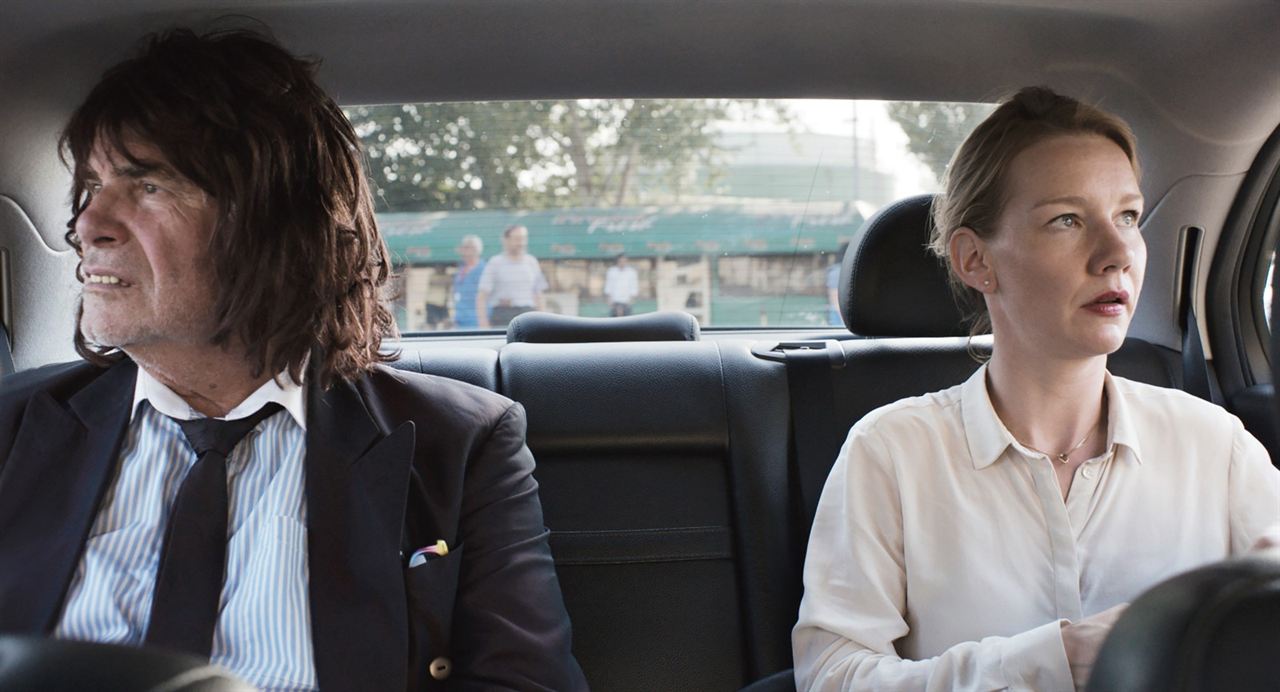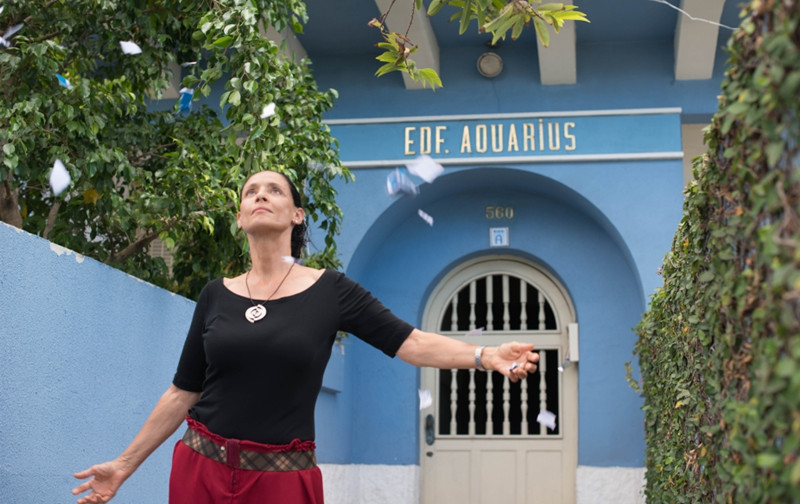5. Things To Come (Mia Hansen-Love)

It’s been a remarkable year for Isabelle Huppert. The grand actress has been receiving a lot of attention for her daring performance in Paul Verhoeven’s provocative “Elle”.
Yet all that might unjustifiably drive away attention from another performance she gave this year, which was at least as good in Mia Hansen-Love’s “Things To Come” . Simply and quickly said: Isabelle Huppert plays Nathalie, a philosophy professor, who has been married for many year and has raised a family with her husband.
One day all of a sudden, he decides to leave her for a younger woman. Nathalie is left to deal with this decision and life in general. Some critics have likened this film to something Woody Allen might have done in the 80s (when he was at his most insightful but also sensible). Yet this film is clearly from a woman’s perspective in a way he could’ve never achieved.
Huppert absolutely shines as a woman, who is caught in the chaotic storm of emotions and issues that life throws at her, yet she is always dignified. “Things To Come” is a complex film, it does a lot without really doing very much, but in its small world, it’s large and exciting. It’s hard to describe, which is probably a good thing since it’s after all a film, but it’s certainly very touching and stays with you for days.
4. Paterson (Jim Jarmusch)

Jim Jarmusch has always been a poet. It had been his idea to become a poet, before he turned to filmmaking and ever since it has shown in glimpses of his films. Be it the references to William Blake in “Dead Man” , or the poetry of his cinematic language. Yet this influence has never been as direct as in “Paterson”, his film about a bus driver named Paterson, who lives and works in the city of the same name.
During the film we get to hear many of Paterson’s poems as they progress. They are simple, but beautiful poems. He writes about the things that surround him: matchboxes for example. The film itself is not only about poetry, but it’s also poetic. Jarmusch has always been a filmmaker, who was most interested in capturing the beauty of everyday life and in this film that quality of his shines through most.
If the film had any cinematic godfather, it would probably be Yasujiro Ozu. His sensibility is channeled by Jarmusch in a way that is as simple as it is charming. The film has a simple structure of taking us through the day to day routine of Paterson and introduces us to an array of characters who are all sympathetic and a lot of fun to watch. Yet the performance that shines through the most is Paterson himself.
Adam Driver gives a wonderful performance, far away for any drama or pathos. He is calm, shy and lovable as Paterson. You could get the impression that sometimes Paterson could get annoyed, with his dog, his routine or even his wife, who loves jumping from one hobby to the next in the matter of days.
Instead, Driver’s performance makes it abundantly clear, that although he barely shows it, he loves all of the things in his life and maybe couldn’t even exist without them. It’s an absolutely wonderful, sweet and touching film about the simple things in life and what radiant beauty they have within themselves.
3. Certain Women (Kelly Reichardt)

Of all the American films on this list, the one that might most probably fall into obscurity is Kelly Reichardt’s “Certain Women”. That , of course, would be a tremendous shame since it’s easily one of the best films that have been released in 2016.
Reichardt adapts three short stories by Maile Meloy. While the stories are interwoven in a very slight manner, that probably wouldn’t have been necessary, since they are already very united in how they feel. They are all somehow sad stories, somehow they are stories about loneliness and they are also stories about women.
Yet describing what unites them can never reach the feeling that Reichardt creates here. Like the last film on this list, they all feel like poems in a way. “Certain Women” stars three great actresses: Laura Dern, Michelle Williams and Kristen Stewart. They all give wonderful performances, each portraying a woman, who is somehow struggling with life, figuring it out somehow and none of them ask for the audiences sympathy.
Therefore they feel very real and even though they are mostly mysterious to us, we believe them. the greatest performance in this film doesn’t come from one of its stars, it comes from a lesser known actress called Lily Gladstone. Gladstone appears in the third episode of the film, where she stars opposite of Kristen Stewart.
This episode alone is worth watching the entire film and while it isn’t heavy on plot (no episode really is), I wouldn’t want to spoil it. Watching these two characters getting to know each other is as fascinating as cinema gets. Stewart is wonderful, but it’s Gladstone who steals the show with her sad eyes and her gentle but determined character.
There hasn’t been a heartbreak more subtle than this story, and Kelly Reichardt pulls it off beautifully. Another thing that shouldn’t go unmentioned is the gorgeous cinematography. The great American emptiness captured in these landscapes on beautiful 16mm make the experience and emotion of this film so much stronger than it already is.
2. Toni Erdmann (Maren Ade)

“Toni Erdmann” has been this year’s critical darling ever since it premiered at the Cannes Film Festival. The fact that it didn’t win any prizes at the festival was even something like a scandal with everyone being disappointed in the jury’s choice and ever since it’s been praised wherever it has gone. It’s also the frontrunner for the Best Foreign Film Oscar.
So what’s it about?: A father (who is quite the prankster) goes to visit his daughter (who is quite the tough businesswoman) in Romania to reconnect with her. “Well… What’s all the fuss about?” you might ask. It’s true: the plot synopsis really doesn’t sound very intriguing and the praise from critics everywhere might just make this seem like a very overhyped film.
That really isn’t the case though: what the film does best is take a plot, that we think we know and somehow manage to turn it on its head. Moments are played on longer than other movies would and scenes that could very well be turned into sentimental stuff, don’t go that way at all. Yet what makes this movie is how human it is.
Everyone can somehow relate to the situation going on in the film. It has an emotional beauty to it, that is overwhelming and surprisingly funny. Lots of the film is a straight up comedy and while many situations are awkward or could be uncomfortable, they are usually so funny that you are too occupied with laughing.
Maren Ade perfectly understands not to load this film with beautiful imagery and instead the camera does what it’s supposed to do, so that the characters and situations can fully prosper. There are two scenes that get a standing ovation at Cannes and I think you will recognize them when you’re in the cinema, cause they are probably among the best, most exciting or even touching scenes that have been in cinemas this year.
One last thing one has to mention about this film are its two lead actors: Peter Simonitschek and Sandra Hüller do wonderful jobs respectively and carry so many complicated emotions with the way they behave and their facial expressions, they really make this film the marvel that it is.
1. Aquarius (Kleber Mendonca Filho)

“Aquarius” is an absolutely lovely film! Since Kleber Mendonca Filho released “Neighboring Sounds” in 2012, it was quite clear that an exciting new filmmaker had arisen. Now in 2016 he brings us a film that is both different and similar: Aquarius. It’s the story of a woman, Clara, who lives in a building she has lived in for decades. She is the last person still living there and a construction company is doing the best they can to get her out of there.
The film is often therefore described as portraying her struggles in keeping her apartment, and in a way it certainly is about that. But “Aquarius” is about so much more. It’s about life and joy, nostalgia, aging, music, and the breeze of the sea. It’s about family, Brazil and women.
Of course the main plot of the story is intriguing, but what would this film be without the central performance of Sonia Braga? She absolutely shines as Dona Clara, a middle aged woman, who is more alive than most young female protagonists in cinema today. But she isn’t only vibrant, energetic and empowered, she is also real. Clara is the kind of protagonist, who reminds you of women in your family, who you know, who don’t let themselves be brought down by anything.
What would Aquarius be without its cinematography? It’s lush and colorful. It’s not as restrained or subtle as we have come to expect from art films. Instead we get cheesy zooms and bright colors. But the most exciting thing about the imagery in this film is its tactility.
In those calm shots that just show us the beach across the street, or Clara relaxing in her hammock, we can basically feel the breeze of the ocean, the warmth of the sun, the scent of the sea that is everywhere in this film. Aquarius has a great sound design, a wonderful soundtrack and a joy to it, that is rare in cinemas. It’s really a wonderful film from start to finish, it will leave you with a big grin after the credits.
Author Bio: Sebastian Bobik was born in New York but moved to Vienna in an early age . After being dazzled by the likes of Kurosawa and Tarkovsky amongst others he decided to become a filmmaker , so far a handful of rather miserable short films stand claim to that . You can also follow his ramblings on Twitter at @SebastianBobik.